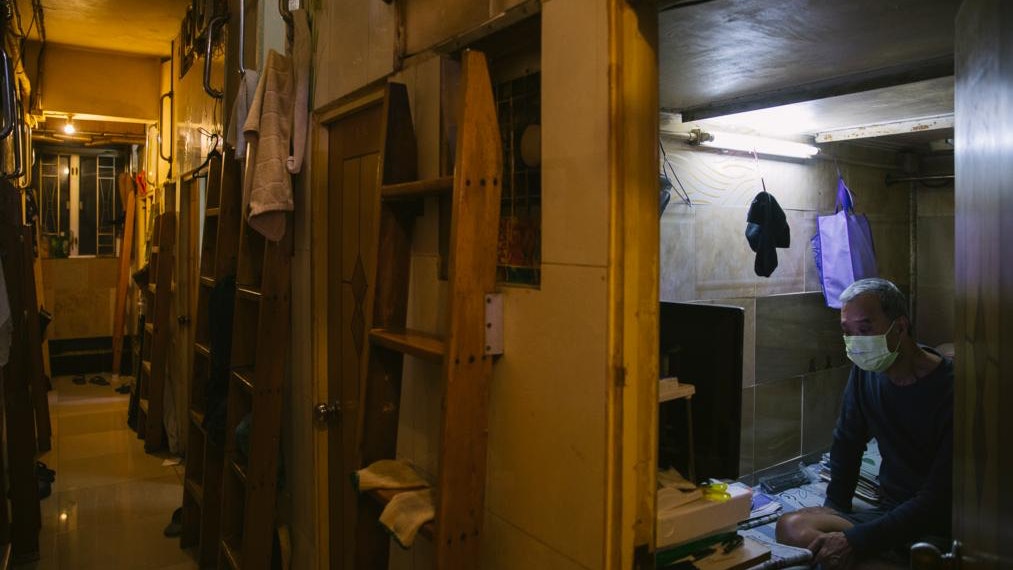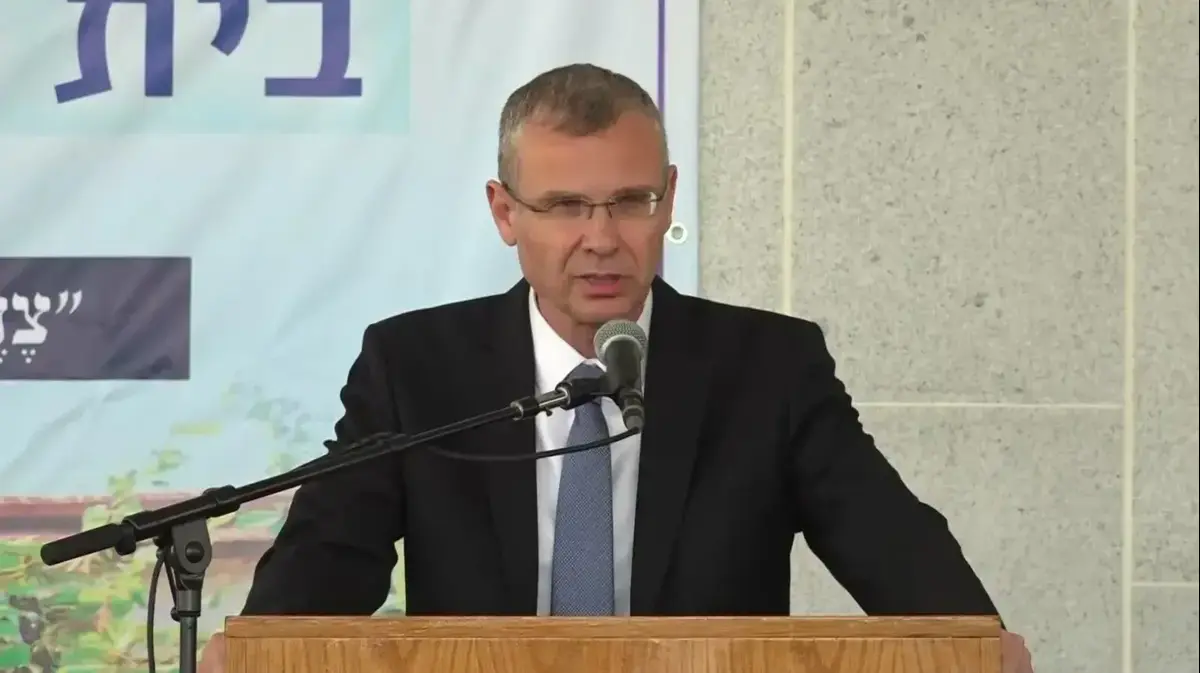Xi Jinping, General Secretary of the Communist Party of China, mentioned in the "20th National Congress Report": "Support Hong Kong and Macau to develop the economy, improve people's livelihood, and solve the deep-seated contradictions and problems in economic and social development." What is said, but the words are different, there is no unified statement.
"Hong Kong 01" raised two questions to the Chief Executive's Office, various policy bureaux and members of the Legislative Council on the content of Xi Jinping's speech above, namely, how to understand the "deep-seated contradictions" in Hong Kong and how to counteract them.
Neither the Chief Executive's Office nor the Policy Bureau responded, and the responses from Members also came from various perspectives, indicating that the political community has different understandings of this issue. There are four main categories. The following Members discuss the composition of deep-seated contradictions from a variety of people's livelihood issues.
Chen Zhongni.
(File photo/Photo by Zhang Haowei)
Chen Zhongni: The government should take the lead, guide and nurture the industrial simplification
Chan Chung-ni raised four questions. The first is the housing issue. Currently, more than 200,000 people live in subdivided housing, and the waiting time for public housing is nearly six years. Fortunately, the Policy Address has introduced relevant policies.
The second is the huge disparity between the rich and the poor. The income of grassroots citizens cannot keep up with the high inflation. We should increase support and protection, but we cannot rely on support alone. The key point is to develop the economy.
Chen Zhongni mentioned that a large number of stores have closed down in the past three years under the epidemic. He believes that only by making the industry bigger and stronger and the company's operations improved can we be able to adjust the salaries of grassroots employees.
The third point is the simplification of industries, focusing on finance, real estate, and tourism-related industries. The "Policy Address" proposed to develop innovation and technology. Even if it is not completely solved, it is believed that some of the problems can be alleviated.
The fourth point is youth development. Due to the simplification of industries, it is more difficult for people with low education to develop. It is recommended that they go to the Greater Bay Area for development or do internships. In the long run, vocational education should be provided to provide them with multiple ways out.
Chen Zhongni believes that the government should take the initiative to deal with these contradictions, and the government should take the lead in promoting it and provide preferential policies to guide the development of the industry.
He emphasized that we can no longer leave everything to the market to develop on its own. He pointed out that the market needs to make the most money in the fastest time, but this approach may not be the best for society. For example, emerging industries need to be cultivated for a long time before they can be fruitful.
Huang Guo.
(File photo/Photo by Xia Jialang)
Huang Guo focuses on poverty, employment and promotes the cancellation of outsourcing to protect migrant workers
Huang Guo pointed out that Hong Kong must face up to social problems such as the disparity between the rich and the poor, working poverty, single industry, deteriorating employment quality, poor living environment, and decreasing opportunities for upward mobility.
He pointed out that the current wage earners have "long working hours, low labor, great pressure, and no future." He asked the government to take the lead in canceling outsourcing, strengthening the retirement protection function of the MPF, reviewing the minimum wage formation mechanism, accelerating the increase in the supply of suitable housing, and promoting employment. industrial development policies, setting up indicators and measures to reduce poverty, especially working poverty, and promoting policy alignment among local cities in the Greater Bay Area.
Wong Kwok said that Hong Kong must put people first, work harder to deal with deep-seated conflicts, create more fair environment and policies, and work with all classes to break down the barriers of interest, so that ordinary working people can also have a sense of achievement and happiness.
Li Zijing.
(file picture)
Li Zijing advocates accelerating development and ensuring upward mobility
Li Zijing pointed out that deep-seated contradictions are some persistent problems, including the disparity between the rich and the poor, housing shortages, and lack of upward mobility.
Li Zijing proposed that the speed of development should be accelerated, the EIA and urban planning procedures in housing supply should be shortened, and the borders of country parks should be developed.
In terms of the disparity between the rich and the poor, it is necessary to ensure upward mobility in the society and proper use of social welfare, achieve targeted poverty alleviation, and create meaningful employment for the grassroots. It is also necessary to reform education, strengthen vocational training, and encourage young people to join the construction industry and innovative technology.
Wu Yongjia.
(File photo/Photo by Liao Yanxiong)
Wu Yongjia: To enhance the sense of ownership, we must meet the housing requirements of citizens
Wu Yongjia believes that deep-seated contradictions are the "big problem" in Hong Kong. In the past, there have been a lot of researches in this area by government think tanks, the public and academia.
He pointed out the problems in the education of young people and children, and believed that education should not only impart knowledge, but also focus on the cultivation of morality and enhance their sense of identity with the country and the government.
He believes that only by enhancing the national identity of young children and their sense of ownership in the SAR can they grasp the key to resolving "deep-seated contradictions".
In addition, from the perspective of citizens, Wu Yongjia pointed out that the needs of citizens are "food, clothing, housing and transportation", and the key problem in Hong Kong is housing.
He quoted Xi Jinping's express statement that "housing is not for speculation", saying that housing should not be a tool for profit-making by speculating, but a necessary condition for living and working in peace and contentment. Therefore, to solve deep-seated conflicts, we must start with the housing issue.
He said that the government recently proposed to provide a large number of simple public housing for the citizens to go upstairs first. The general idea is correct and worthy of support, and the citizens are also eager to "live well and live in a big place", and the government should cater to the people's yearning for a better life.
Wu Yongjia also mentioned that the implementation of policies is very important to solve the deep-seated contradictions, and KPI is to put an end to the style of false and submissive, to implement the plan, and to speed up and increase the amount of problem solving.
Liang Xi.
(file picture)
Liang Xi: Optimizing medical care to deal with population aging and setting up industry ladders for young people
Liang Xi believes that in addition to the housing issue frequently mentioned by leaders, medical care and youth development are also major pain points.
In terms of medical care, he pointed out that the waiting time for a new sputum in a specialist outpatient clinic in a public hospital was as long as 3.3 years, and the condition deteriorated at any time during the long waiting time.
He suggested reviewing the experience of public-private partnership and expanding the program to other diseases, so as to use the power of private medical care to relieve the pressure on public hospitals.
In the long run, it is necessary to optimize primary care and increase the number of doctors and beds to meet the needs of population growth and continued aging.
In terms of youth development, due to the rise in property prices for many years, many young people are looking forward to building their homes, and townhouses have become their life goals. The situation is not ideal.
Liang Xi said that the traditional home-buying ladder cannot accommodate single young people, so it is necessary to design an exclusive home-buying ladder for young people. It is suggested that new land projects such as the northern metropolitan area should formulate the concept of long-term home ownership, and allocate some purchase amount for young people to apply in advance, so that they can Knowing that you can guarantee the purchase of a home in 5 or 10 years, so as to make a good life plan.
Zhou Xiaosong.
(file picture)
Zhou Xiaosong pointed out that the problems are intertwined to ensure that "I-shaped characters can be successful"
Zhou Xiaosong also paid attention to the problem of housing difficulties for young people. He pointed out that the large gap between the rich and the poor and the difficulty of upward mobility are all real and deep-seated contradictions, which have been accumulated over a long period of time and are linked together.
Zhou Xiaosong pays attention to labor rights and interests, and believes that in order to achieve the "20th National Congress" report, "adhere to hard work, encourage hard work to become rich, promote equal opportunities, increase the income of low-income people, and expand the middle-income group", it is necessary to promote industrial diversification. Develop and comprehensively reform vocational education, and improve labor policies, so that skilled workers can also "get ahead".
Zhou Xiaosong put forward a number of suggestions to improve labor rights, such as reviewing the minimum wage mechanism and establishing an unemployment protection system, strengthening the training of vocational talents to support the promotion of diversified development of the industry, and setting up a promotion ladder in industries that have long been short of manpower to attract newcomers to the industry.
Topic ︱Deep-level contradictions, Speakers and Representatives' four-way interpretation topic , Upstream, House Land









